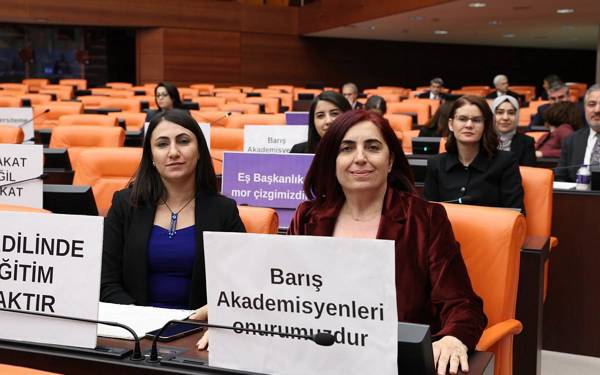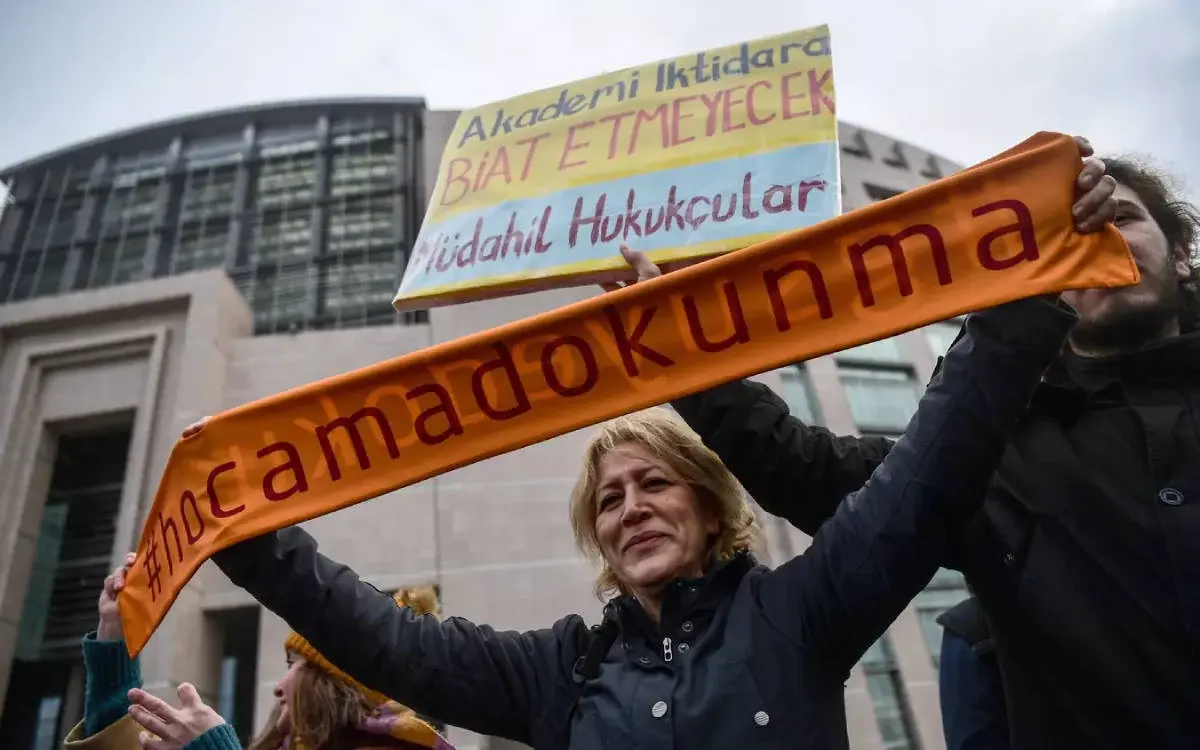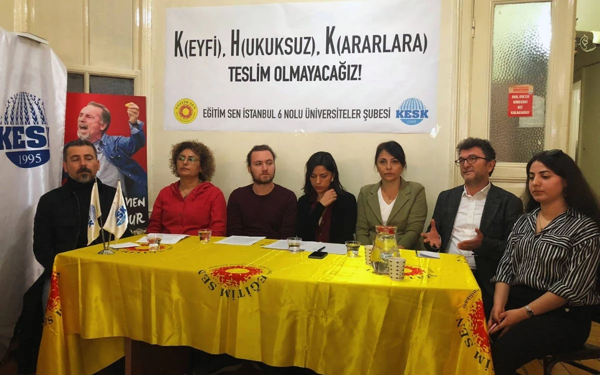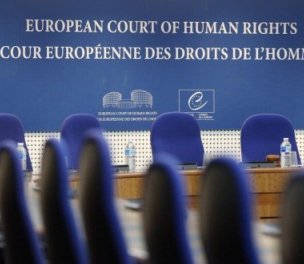The Constitutional Court (AYM) did not find a 'violation' in the disciplinary punishment given to teacher G.Ş. for sharing the declaration of the Academics for Peace 'We will not be a party to this crime' on social media.
However, the school administration stated that “the allegation that they supported the statement against the fight against terrorism has been proven” and sentenced the teacher to reprimand in accordance with Article 125 of the Law on Public Servants, on the charge of “behaving in a manner that may undermine the reputation and trust of a public servant outside the service”.
G.Ş. then applied to the administrative court for the annulment of the disciplinary penalty. The first instance court stated that “public servants are under the obligation of loyalty and impartiality, and in this context, they cannot make statements and take actions for political and ideological purposes”.
The court rejected the request, saying that “the struggle of the police and military against the PKK cannot be characterized as a massacre, slaughter and attack.”

Academics for Peace not able to return to posts despite top corut ruling, says MP
Constitutional Court reviews freedom of expression G.Ş. then took the case to the Constitutional Court, stating that their “freedom of expression was violated”. The Constitutional Court also discussed the case on March 28.
The Constitutional Court, referring to many rulings, including Füsun Üstel's, stated that the declaration was dominated by the demand for an end to the conflicts at the time. Reminding that in the case of civil servants, whether the views - regardless of their ultimate goal - are expressed in a balanced and politically neutral manner, whether personal attitudes are displayed, and whether their impartiality is guaranteed will be evaluated in the examination of freedom of expression, the Constitutional Court said: “The applicant, who is a public servant, is expected to use a more careful language and act meticulously when criticizing the state's anti-terrorism policies.”
Then the following assessment was made:
As a public official, it is possible for a teacher, like anyone else, to hold and share any opinion on an event within the scope of freedom of expression. However, in the concrete case, the applicant, who was responsible for the public service of education and training as part of their duty, shared with their followers a declaration that dealt with the grave violence that had been going on for a long time in a certain region of the country from a single perspective, in an unhesitating, rigid and absolutely accusatory manner.
Considering the content of the statement shared by the applicant from a publicly accessible account, it can be said that the sharing was not the result of a spontaneous reaction and brought with it certain risks. Therefore, it must be accepted that the applicant's post - when the sphere of influence of the teaching profession is evaluated - creates a danger of inculcating one-sided, inappropriate and violent ideas to their students and others who expect them to act objectively.
The Constitutional Court concluded that the applicant did not fulfill the requirements of the public officer's obligation to refrain from behaviors that would require the imposition of a disciplinary penalty by acting against the reputation and trust provided by the status of a public servant to which they were subjected and that the disciplinary penalty imposed corresponded to a compelling social need.
Undoubtedly, disciplinary penalties have an impact on the career of public servants and may also lead to the termination of public servant status in cases stipulated by law. In the concrete case, considering the nature of the applicant's action, it was understood that they were punished with a reprimand, which is a relatively light disciplinary penalty, and it was evaluated that the intervention was not disproportionate.
For the reasons explained above, the Constitutional Court ruled that the interference with teacher G.Ş.'s freedom of expression was in line with the requirements of democratic social order. It ruled that Article 26 of the Constitution was not violated.
(HA/DT)
















